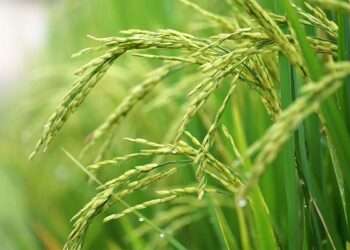Long regarded as the powerhouse of the global cocoa industry, West African countries like Ghana and Ivory Coast are currently grappling with a dire cocoa crisis, sending shockwaves through the chocolate market.
With these nations collectively contributing over 60 percent of the world’s cocoa supply, the repercussions of their faltering harvests are reverberating across the globe.
The surge In cocoa prices has been nothing short of staggering, with New York cocoa futures more than doubling in a single year. Record highs are being set almost daily, marking an unprecedented trend that shows no signs of relenting. But what exactly is behind this cocoa catastrophe?
According to reports, a multitude of factors have converged to create a perfect storm for West Africa’s cocoa industry. Rampant illegal gold mining, exacerbated by lax regulations and enforcement, has encroached upon cocoa-growing regions, leading to land degradation and loss of arable land. Climate change has further compounded the crisis, with unpredictable weather patterns wreaking havoc on cocoa yields.
However, perhaps the most alarming revelation is the widespread outbreak of swollen shoot, a devastating virus that attacks cocoa plantations. Data indicates that Ghana’s cocoa marketing board, COCOBOD, estimates that a staggering 590,000 hectares of cocoa plantations have been infected since 2018. Left unchecked, this virus will ultimately decimate entire cocoa farms, dealing a severe blow to the industry’s future prospects.
The consequences of this cocoa crisis extend far beyond West Africa’s borders. As cocoa prices continue to soar, chocolate manufacturers are grappling with the prospect of dwindling supplies and escalating production costs.
In turn, consumers may soon find themselves facing higher prices at the checkout counter as chocolate becomes a luxury commodity rather than a household staple.
To mitigate the impact of this crisis, urgent action is needed on multiple fronts. West African governments must prioritize the protection and rehabilitation of cocoa-growing regions, cracking down on illegal activities and implementing sustainable agricultural practices.
International Cooperation and Investment
International cooperation and investment are also crucial, as the global community must come together to support cocoa-dependent economies and ensure the long-term viability of the industry.
Ghana today has some 1.38 million hectares (3.41 million acres) of land under cocoa cultivation, a figure Cocobod said includes infected trees that are still producing cocoa.
“Production is in long-term decline,” said Steve Wateridge, a cocoa expert with Tropical Research Services. “We wouldn’t get the lowest crop for 20 years in Ghana and lowest for eight years in Ivory Coast, if we hadn’t reached a tipping point.”
It Is an imbroglio with no easy fixes that has shocked markets and could spell the beginning of the end of West Africa’s cocoa supremacy, the experts told Reuters. That may open the door for ascendant producers, particularly in Latin America.
And while millions of cocoa farmers in West Africa are facing a painful watershed moment, it is a shift that will also be felt in wealthy consumer markets, possibly for years to come.
Shoppers buying Easter confections in the United States are discovering that chocolate on store shelves is more than 10 percent more expensive than a year ago, according to data from research firm NielsenIQ.
Since chocolate-makers tend to hedge cocoa purchases months in advance, analysts have said the disastrous crops in West Africa will only really hit consumers later this year.
“The kind of chocolate bar that we’re used to eating, that’s going to become a luxury,” said Tedd George, an Africa-focused commodities expert with Kleos Advisory. “It will be available, but it’s going to be twice as expensive.”
In the face of adversity, innovation and resilience will be key to navigating the challenges ahead. Whether through the development of disease-resistant cocoa varieties, investment in climate-smart agriculture, or the promotion of alternative livelihoods for affected farmers, concerted efforts are needed to safeguard the future of chocolate production.
As West Africa’s cocoa crisis deepens, the time for action is now. The fate of the world’s favorite indulgence hangs in the balance.
READ ALSO: Faye To Initiate Radical Policy Change In Senegal





















